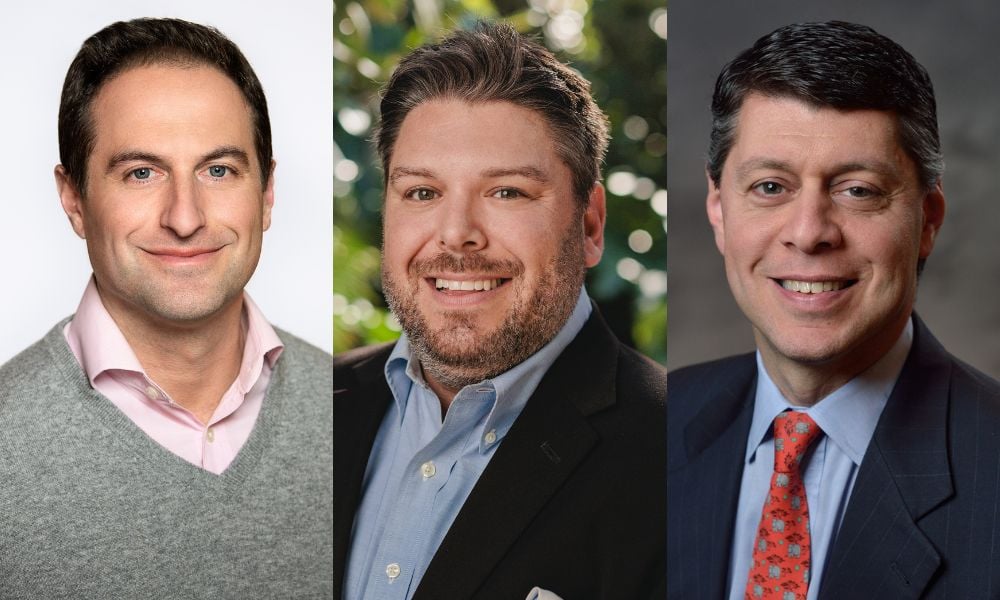

As Robinhood faces an investigation from Massachusetts regulators over its recently launched sports prediction markets for March Madness college basketball games, financial advisors are understanding of their wealthy clients seeking DIY (do-it-yourself) investment platforms, but request transparency across accounts.
“I try not to discourage it, because I think it’s okay for people to manage some portion of their money on their own. If nothing else it teaches them to be interested in their investments and maybe you’re able to have more meaningful conversations,” Andrew Mescon, CEO of the South Carolina-based RIA Ballast Rock Private Wealth told InvestmentNews.
Robinhood partnered with prediction market operator Kalshi on March 17 to launch prediction markets on its stock-trading app for NCAA tournament basketball games, and Reuters reported this week that Massachusetts Secretary of State Bill Galvin is investigating whether the new product constitutes a form of gambling, and has asked Robinhood to identify any residents in the state with brokerage accounts who sought to trade college sports events contracts.
“When I’m doing my fact finding and due diligence, I want to know what they’re invested in so it can inform recommendations I’d make with assets I am managing,” Mescon added. “I would ask them pretty poignantly, what their objective is for it? Sometimes it’s because they like doing it, it’s fun, and that’s fine. But if they’re saying it’s because they could beat the market—and they have the last two years every year—I try to educate them on how infrequent that actually happens even at the professional level.”
Prediction markets pose odds-based yes/no questions over the outcome of events for payouts should users pick the correct outcome. The Commodity Futures Trading Commission forced Robinhood to pull its prediction markets around the Super Bowl in February, but Robinhood has said its event contracts for March Madness are regulated by the CFTC.
“I am not a Robinhood fan. I feel like they have created an addictive, gaming culture which is not healthy for investing. Fidelity, Schwab, Vanguard and Interactive Brokers are solid choices,” said Paul Schatz, president of Connecticut-based RIA Heritage Capital, adding that he recommends clients ideally put no more than 5% of their portfolios into DIY investing.
“While the vast majority of our clients do not do any DIY investing, a small number do and I encourage them,” Schatz said. “This kind of behavior usually happens in strong, hot and sexy environments. It rarely happens in down markets. I also let clients know to use me as a sounding board for their own ideas and strategies which builds a stronger relationship.”
Mescon echoed Schwab, Fidelity, and Vanguard as more popular personal investing platforms for his high-net-worth clients over Robinhood, which instead targets younger retail investors. Robinhood, which was fined $45 million by the SEC in January over securities law violations, has made inroads into the RIA space with its $300 million acquisition of the Florida-based custodial platform TradePMR in November 2024.
Robinhood has not yet shared how much money has been transacted on its March Madness prediction markets, but Kalshi has seen customers place $208 million worth of trades during the first two rounds of NCAA tournament games. Paul Marino, chief revenue officer of Themes ETFs, sees shifting attitudes of younger generations posing a challenge for advisers and their service offerings.
“I think the younger generation is leery of paying fees to advisors. There's also a sea change in mentality. Gambling has become more prevalent and risk appetite has become more prevalent,” Marino said. "People want access to information on their own. People don't want to hear I can't trade crypto, I can't do this, I can't do that. They want full access. And I think part of the problem is that some of these firms are very strict in what they allow their advisors to do, and that's going to keep a certain portion of the assets out.”

LifeMark Securities has faced scrutiny in the past for its sales of GWG L bonds.

New data from F2 Strategy shows 95% of RIAs are using AI - four times the adoption rate of banks. Trust companies account for 90% of firms not using AI, raising alarms about their ability to stay competitive.

The ex-registered broker facilitated a series of transactions, including nine trades totaling nearly $130,000 and eight withdrawals amounting to $85,000, for a fourteen-month period after the client's death.

The wealth tech giant is offering advisors a natural, intuitive way to use AI through its new business intelligence and insights engine features.

Sometimes letting clients lead conversations, rather than having all the answers, can be the most powerful trust-builder.
How intelliflo aims to solve advisors' top tech headaches—without sacrificing the personal touch clients crave
From direct lending to asset-based finance to commercial real estate debt.
